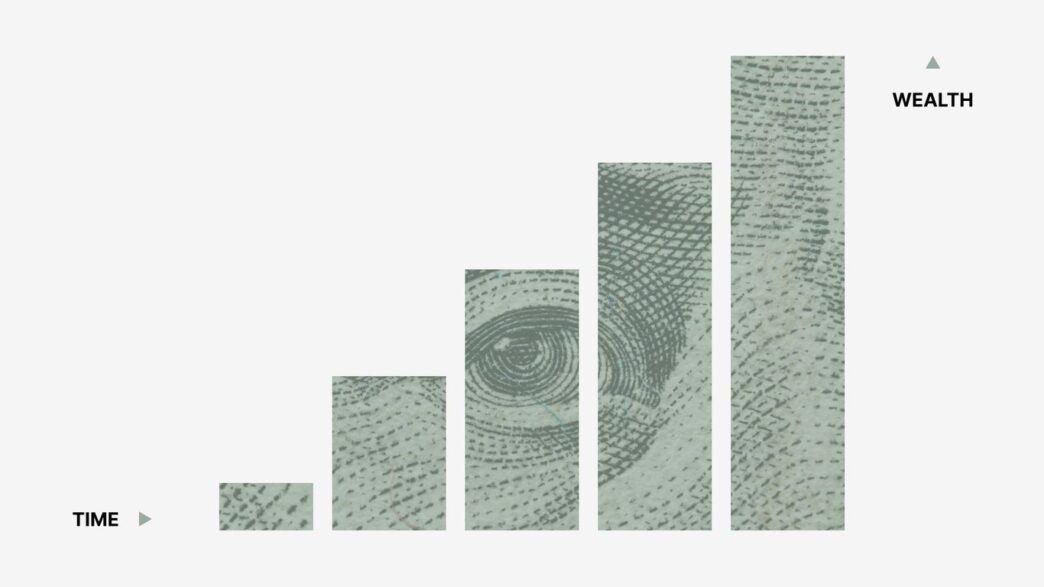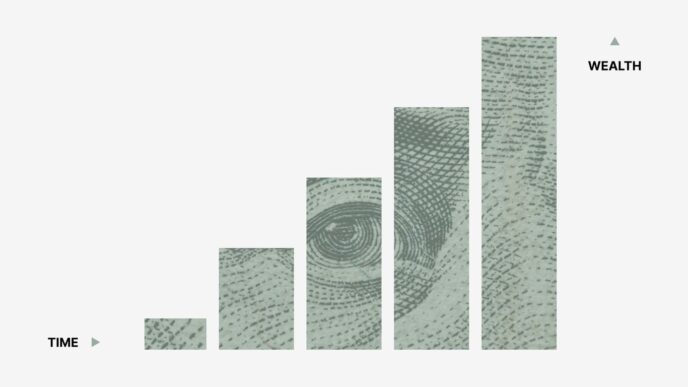Thinking about a career in digital marketing? It’s a field that’s always changing, and knowing what you can earn is a big part of planning your future. We’re going to look at the digital marketing salary trends you can expect in 2025. It’s not just about the numbers, though; it’s about understanding what makes those numbers go up or down. We’ll break down what influences pay, what skills are most wanted, and how you can grow your earnings over time. Let’s get into it.
Key Takeaways
- Digital marketing salaries are on the rise, reflecting the growing importance of online business strategies.
- Entry-level roles might start around $40k-$50k, with significant jumps possible as you gain experience and specialize.
- Specializing in areas like SEO, data analytics, or paid advertising can really boost your digital marketing salary.
- Location matters a lot; major cities often pay more, but the cost of living is also higher.
- Skills like content creation, data analysis, and adaptability are just as important as technical know-how for career advancement and better pay.
Understanding Digital Marketing Salary Expectations
So, you’re thinking about jumping into digital marketing, huh? It’s a pretty hot field right now, and for good reason. Businesses are spending more time and money online than ever before, which means they need people who know how to get noticed in that space. But what can you actually expect to earn? It’s not a one-size-fits-all answer, but we can break it down.
Entry-Level Digital Marketing Compensation
When you’re just starting out, the paychecks aren’t going to be huge, but they’re usually decent. Think somewhere in the ballpark of $40,000 to $50,000 a year. These roles are often about learning the ropes, maybe managing social media posts, helping with email campaigns, or doing some basic research. You might not need a fancy degree for these, but you’ll definitely need to show you’re eager to learn and can pick things up quickly. It’s a great way to get your foot in the door and figure out what parts of digital marketing you like best.
Mid-Career Earning Potential
Once you’ve got a few years under your belt and you’ve started to specialize in something, like search engine optimization (SEO) or running paid ad campaigns, your salary can really start to climb. People in this stage often earn between $60,000 and $80,000 annually. This is where you start to become a real asset to a company because you can point to actual results you’ve achieved. You’re not just doing tasks; you’re contributing to the company’s bottom line. If you’re good at analyzing data or creating content that people actually want to read or watch, that’s going to bump up your earning power even more.
Senior-Level Digital Marketing Salaries
If you’ve been in the game for a while, have a proven track record, and can lead projects or even teams, you’re looking at a much bigger paycheck. Senior digital marketers, like marketing managers or directors, can easily make $90,000 to over $120,000 a year. At this level, companies are paying for your strategic thinking, your ability to manage complex campaigns, and your knack for driving real business growth. It takes a lot of experience and a solid understanding of how all the different digital marketing pieces fit together to get here.
Factors Influencing Digital Marketing Pay
So, you’re curious about what makes a digital marketer’s paycheck go up or down? It’s not just about how many hours you put in. Several things really shake up the numbers, and understanding them can help you figure out where you stand and where you might want to aim.
The Impact of Specialization on Digital Marketing Salary
Think of digital marketing like a big toolbox. You’ve got hammers, screwdrivers, wrenches – all useful, but some are for really specific jobs. The same goes for digital marketing skills. Being a jack-of-all-trades is good, but if you’re the go-to person for, say, making websites show up higher in Google searches (that’s SEO), or if you’re a wizard at running those paid ads on Google or social media (PPC), you’re often going to earn more. Companies need these specialized skills, and they’re willing to pay for someone who’s really good at them.
Here’s a quick look at some areas that tend to pay well:
- Search Engine Optimization (SEO): Getting websites found organically.
- Data Analytics: Figuring out what all the numbers mean to make better decisions.
- Pay-Per-Click (PPC) Advertising: Managing ad spend effectively.
- Conversion Rate Optimization (CRO): Turning website visitors into customers.
Geographical Location and Its Effect on Earnings
Where you live matters, a lot. If you’re working in a big city like New York or San Francisco, where the cost of living is sky-high and there are tons of tech companies, your salary will likely be higher than if you’re in a smaller town. It makes sense, right? Companies in expensive areas have to pay more to attract people, and the cost of doing business is just higher. On the flip side, a lower salary in a cheaper area might actually give you more buying power.
| City Type | Typical Salary Range (Annual) | Notes |
|---|---|---|
| Major Tech Hub | $70,000 – $120,000+ | High cost of living, high demand |
| Mid-Size City | $55,000 – $90,000 | Moderate cost of living, steady demand |
| Smaller Town/Rural | $45,000 – $75,000 | Lower cost of living, fewer opportunities |
Experience Level and Its Correlation with Salary
This one’s pretty straightforward. The more time you’ve spent in the digital marketing trenches, the more you’re generally going to make. Someone just starting out, maybe fresh out of school or a boot camp, won’t command the same salary as someone who’s been running campaigns for five or ten years, has managed teams, and has a track record of success. Companies value that proven ability to get results. It’s about learning the ropes, making mistakes (and learning from them!), and building a solid understanding of what works and what doesn’t.
Key Skills Driving Digital Marketing Salaries
So, what exactly are companies looking for when they decide how much to pay a digital marketer? It’s not just about having a degree or knowing a few buzzwords. The real money is in having a solid set of skills that directly impact a business’s bottom line. Think of it like this: if you can bring in more customers or make existing ones happier, you’re going to be worth more to them.
Technical Proficiencies in High Demand
This is where the rubber meets the road for many digital marketing roles. You’ve got to know how to do things, not just talk about them. We’re talking about the nuts and bolts of online campaigns. Proficiency in data analysis is becoming non-negotiable for marketers aiming for higher paychecks. Understanding what the numbers mean and how to use them to make better decisions is a huge deal.
Here’s a quick rundown of some technical skills that really move the needle:
- Search Engine Optimization (SEO) & Search Engine Marketing (SEM): Knowing how to get a website seen organically and through paid ads is gold. This includes keyword research, on-page optimization, and managing ad campaigns.
- Data Analytics: Tools like Google Analytics are your best friend. You need to be able to track website traffic, understand user behavior, and figure out what’s working and what’s not. This helps prove your worth.
- Content Management Systems (CMS) & Marketing Automation: Being comfortable with platforms like WordPress and using tools to automate email campaigns or social media posting saves time and makes campaigns more efficient.
- Digital Advertising Platforms: Deep knowledge of platforms like Google Ads and Meta Ads (Facebook/Instagram) is key for anyone running paid campaigns. You need to know how to target audiences, set budgets, and optimize for results.
The Value of Creative and Content Skills
While the technical side is important, you can’t forget about the creative stuff. People connect with good stories and appealing visuals. If you can create content that grabs attention and keeps people engaged, you’re in a strong position.
- Content Creation: This means writing blog posts, social media updates, website copy, and more that actually speak to people. It’s about being clear, concise, and interesting.
- Graphic Design & Video Editing: Having basic skills here is a big plus. Being able to whip up a decent-looking graphic for social media or edit a short video can make your campaigns stand out without needing to hire an external designer for every little thing.
- Storytelling: This is more of an art, but it’s incredibly important. Can you craft a narrative around a brand or product that makes people care? That’s a skill that’s hard to teach and highly sought after.
Essential Soft Skills for Career Advancement
Beyond the technical and creative abilities, there are those ‘people skills’ that make a huge difference. These are the things that help you work well with others, solve problems, and adapt to the ever-changing digital landscape. They might not seem as flashy as coding or design, but they are what allow you to grow into leadership roles and earn more over time.
- Problem-Solving: When a campaign isn’t working, can you figure out why and fix it? This ability to troubleshoot is vital.
- Adaptability: The digital world changes daily. Being able to roll with the punches and learn new tools or strategies quickly is a must.
- Communication: You need to be able to explain your ideas clearly, whether you’re talking to your boss, your team, or clients. This includes both written and verbal communication.
- Critical Thinking: This is about analyzing information, questioning assumptions, and making smart decisions based on evidence, not just gut feelings. It’s a skill that helps you avoid costly mistakes and build a strong career.
Ultimately, the digital marketers who command the highest salaries are those who combine a strong technical foundation with creative flair and the ability to work effectively with others. It’s a blend that businesses are willing to pay for.
Career Progression and Salary Growth in Digital Marketing

So, you’ve gotten your foot in the door in digital marketing. That’s awesome! But what’s next? It’s not just about landing that first job; it’s about figuring out how to move up and, let’s be honest, make more money. The digital marketing world is always changing, so staying put isn’t really an option if you want your paycheck to grow. Think of it like a video game – you gotta level up to get to the cooler stages.
Navigating Digital Marketing Career Paths
There isn’t just one way to climb the ladder. You could become a specialist in something super specific, like SEO or paid ads, or you might aim to be a generalist who can handle a bit of everything. Some people even go the freelance route, building their own client base. It really depends on what you enjoy and where you see yourself.
- Specialist Path: Focus on one area, like becoming a top-tier SEO expert or a wizard with Google Ads. This often means deeper knowledge and potentially higher pay for that specific skill.
- Generalist Path: Become a jack-of-all-trades, managing multiple aspects of a digital campaign. This can lead to broader management roles.
- Entrepreneurial Path: Start your own agency or go freelance, setting your own rates and choosing your projects.
The key is to keep learning and adapting, because what works today might not work tomorrow. For instance, understanding how to increase organic search visibility is a skill that consistently pays off.
The Role of Certifications and Continuous Learning
Getting certified in specific tools or platforms can really make your resume pop. Think Google Analytics or HubSpot certifications. They show employers you’ve put in the work to learn the ropes. But it’s not just about collecting certificates; it’s about actually keeping up with what’s new. The digital marketing landscape shifts so fast, you’ve got to be on your toes. Reading industry blogs, attending webinars, and even taking short online courses are all part of the game. It’s like staying updated on the latest [social media marketing jobs] trends.
Remote Work Opportunities and Earning Potential
One of the coolest things about digital marketing is how many jobs you can do from anywhere. This opens up a ton of possibilities. You’re not limited to jobs in your immediate area anymore. You can apply for roles at companies across the country, or even globally. This wider net can mean more opportunities and, sometimes, better pay because you’re competing in a larger market. Plus, many companies are now offering remote positions, which can be a huge perk for work-life balance and can impact your overall earning potential.
Emerging Trends Shaping Digital Marketing Salaries
The digital marketing world isn’t static, and neither are the paychecks. What you can expect to earn is constantly being reshaped by new technologies and how businesses operate. It’s a good idea to keep an eye on these shifts if you’re looking to boost your income.
AI and Data Analytics in Marketing Roles
Artificial intelligence (AI) and advanced data analytics are no longer just buzzwords; they’re becoming core to many digital marketing jobs. Marketers who can use AI tools to personalize campaigns or analyze vast datasets to find hidden trends are in high demand. Think about it: businesses want to know exactly what their customers want, and AI helps them get there faster. This means roles focused on data interpretation and AI implementation are seeing salary bumps. Professionals skilled in these areas are becoming indispensable. For instance, a digital marketing manager role might now require proficiency in using AI-driven analytics platforms, which can influence their earning potential significantly, potentially reaching figures like $130,000 annually.
The Rise of Specialized Digital Marketing Niches
While general digital marketing skills are still important, the field is getting more specialized. Instead of just being a ‘digital marketer,’ you might be an ‘SEO specialist,’ a ‘PPC expert,’ or a ‘conversion rate optimization guru.’ These specialized roles often command higher salaries because they require deep knowledge and a proven ability to deliver specific results. It’s like being a jack-of-all-trades versus a master of one – the master usually gets paid more. Some of these niches include:
- Content Marketing: Crafting compelling stories and information that draw people in.
- Affiliate Marketing: Building networks and partnerships to drive sales.
- Marketing Automation: Setting up systems to streamline marketing tasks.
- Programmatic Advertising: Using technology to buy ad space automatically.
Diversity and Inclusion’s Influence on Compensation
Companies are increasingly recognizing that diverse teams bring fresh perspectives and drive innovation. This focus on diversity and inclusion isn’t just about company culture; it’s starting to influence compensation. Organizations that actively promote inclusive hiring practices and create equitable workplaces may find themselves attracting a wider pool of talent, which can, in turn, lead to more competitive salary offers across the board. While it’s a developing trend, expect to see more emphasis on how inclusive environments impact overall team performance and, consequently, earning potential for everyone involved. This push for fairness is a positive step for the entire industry.
Wrapping It Up
So, as we’ve seen, digital marketing is still a really hot field, and it looks like that’s not changing anytime soon. The money you can make is pretty good, and it seems like there are always new ways to learn and grow. Whether you’re just starting out or you’ve been in the game for a while, keeping your skills sharp and maybe picking up a new specialty could really pay off. The online world keeps changing, and so do the jobs that come with it, so staying curious and adaptable is probably the best strategy for anyone looking to do well in this area.
Frequently Asked Questions
How much money can I make as a digital marketer?
Digital marketing jobs can pay really well! Starting out, you might make around $40,000 to $50,000 a year. But if you get more experience or become a specialist, you could earn $60,000 to $80,000, or even over $120,000 if you’re in a senior role. Some people even report making much more!
Do I need a college degree to work in digital marketing?
Not always! While a degree can help, many people get into digital marketing by learning skills through online courses or by practicing. What really matters is having the right skills and showing employers what you can do through projects or a portfolio.
What are the most important skills for digital marketing jobs?
It’s a mix of things! You need to know how to use tools for things like search engines (SEO) and online ads (PPC). Being good at creating interesting content, like writing or making videos, is also super important. Plus, being able to solve problems and work well with others helps a lot.
Can I work from home as a digital marketer?
Yes, definitely! Digital marketing is one of those jobs that’s great for working remotely. Many companies let their digital marketers work from home, giving you more freedom and the chance to work for companies anywhere in the world.
What’s the difference in pay based on where I live?
Where you live can change how much you earn. Big cities with lots of tech companies, like New York or San Francisco, usually pay more because it costs more to live there. Smaller towns might pay less, but your money might also go further.
What new things are happening in digital marketing that affect pay?
Things like artificial intelligence (AI) and understanding lots of data are becoming really important, which can boost your salary. Also, focusing on special areas of digital marketing, like a specific type of social media or online advertising, can make you more valuable and earn you more money.














